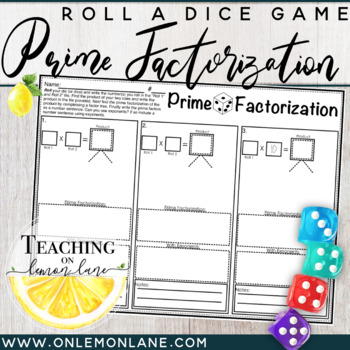Prime Factorization with Exponents Dice Game (Prime Factors/Factoring) Math
- PDF
What educators are saying
Description
My 5th Grade students love this Prime Factorization with Exponents Dice Game! Great to play as a whole class in Math centers, rotations or as a group!
This worksheet works as a great activity for math centers "rotations", bell work (bell-work), review, or whole class activity.
**You need at least one die per student.**
I created this activity to directly align with Common Core. This is perfect for students to explicitly see and experience hands on what factor trees are, how to use them, and how to write the prime factorization of numbers.
Students will practice multiplication, prime factorization(factoring), and exponents.
Use the note section to customize the worksheet to your classroom. For example have students identify greatest common factor in the note section, have them write out what they found, or have them order the numbers from least to greatest...etc.
I hope you and your class enjoy this activity as much as we do! Let me know if you need anything added or changed! THANKS



